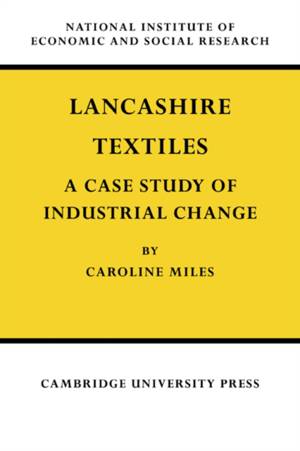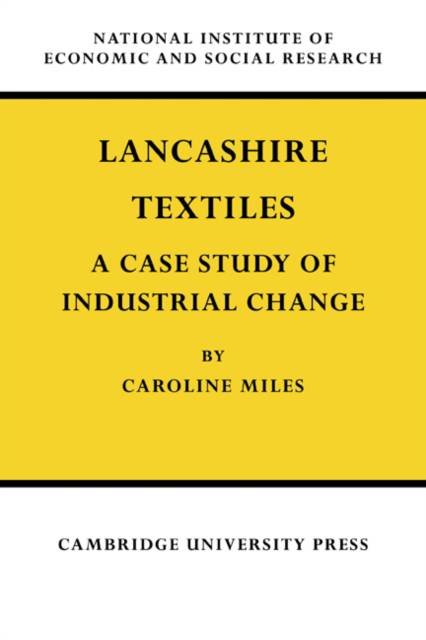
Bedankt voor het vertrouwen het afgelopen jaar! Om jou te bedanken bieden we GRATIS verzending (in België) aan op alles gedurende de hele maand januari.
- Afhalen na 1 uur in een winkel met voorraad
- In januari gratis thuislevering in België
- Ruim aanbod met 7 miljoen producten
Bedankt voor het vertrouwen het afgelopen jaar! Om jou te bedanken bieden we GRATIS verzending (in België) aan op alles gedurende de hele maand januari.
- Afhalen na 1 uur in een winkel met voorraad
- In januari gratis thuislevering in België
- Ruim aanbod met 7 miljoen producten
Zoeken
Omschrijving
First published in 1968, this paper deals with changes in the Lancashire textile industry after the mid-1950s. The decline of cotton, with its repercussions on the economy of England, has tended to obscure more positive developments, mostly related to man-made-fibre textiles. The study contains a detailed analysis of the working of the 1959 Cotton Industry Act, which was designed to accelerate rationalisation and re-equipment. The intentions of the Act are discussed, and a statistical picture of the changes in the structure of the industry is given. The paper discusses the nature of industrial change and its measurement. It describes the technology of textile manufacture and analyses the possibilities for technical progress. The paper ends with a look at the impact of the decline of the cotton industry on the economy of the north-west.
Specificaties
Betrokkenen
- Auteur(s):
- Uitgeverij:
Inhoud
- Aantal bladzijden:
- 136
- Taal:
- Engels
- Reeks:
- Reeksnummer:
- nr. 23
Eigenschappen
- Productcode (EAN):
- 9780521072861
- Verschijningsdatum:
- 2/04/1968
- Uitvoering:
- Paperback
- Formaat:
- Trade paperback (VS)
- Afmetingen:
- 152 mm x 229 mm
- Gewicht:
- 208 g

Alleen bij Standaard Boekhandel
+ 121 punten op je klantenkaart van Standaard Boekhandel
Beoordelingen
We publiceren alleen reviews die voldoen aan de voorwaarden voor reviews. Bekijk onze voorwaarden voor reviews.









